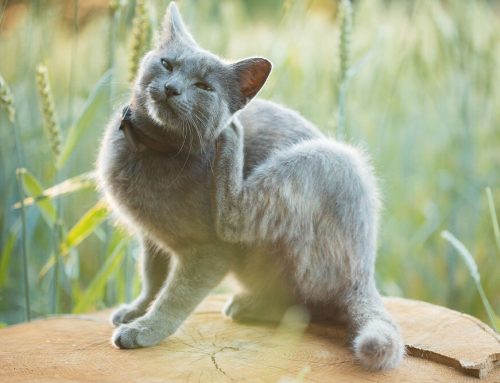As pets age, they may experience changes in their physical, mental, and emotional well-being. Assessing your senior pet’s quality of life is crucial for ensuring their comfort and happiness during their golden years. Our Stanton Pet Hospital team provides this guide to explain how to evaluate your furry friend’s condition and make informed decisions about their care.
Assessing the physical health and comfort of your senior pet
Health and mobility are undeniably important to your pet’s quality of life and their ability to engage in everyday tasks. Consider the following health criteria for your pet:
- Mobility and pain management — Observe your pet’s ability to move around and get up. Difficulty walking, climbing stairs, or rising from rest may indicate pain or discomfort. Conditions, such as arthritis, hip dysplasia, and spinal issues, are common in senior pets and can significantly impact their quality of life. Regular exams with our Stanton Pet Hospital team and pain management strategies, such as medications or physical therapy, can help alleviate these issues.
- Appetite and weight — A noticeable change in appetite or weight can indicate underlying health problems. Weight loss may be caused by diseases such as kidney failure, cancer, or dental issues, while weight gain can lead to obesity-related complications. Monitoring your pet’s eating habits and maintaining a balanced diet are crucial for their well-being.
- Grooming and hygiene — Senior pets may struggle with grooming because of decreased flexibility or energy. Inadequate grooming can lead to matted fur, skin infections, or dental problems. Regular grooming sessions and dental care can help maintain your senior pet’s hygiene and comfort.
Gauging your senior pet’s emotional well-being
Your senior pet’s emotional health should also be factored into their quality of life. Consider the following:
- Behavioral changes — Changes in behavior can indicate discomfort or cognitive decline. Signs, such as increased irritability, anxiety, confusion, or disorientation, may suggest cognitive dysfunction syndrome (CDS), similar to Alzheimer’s disease in people. Providing a stable environment and engaging with your pet in gentle, stimulating activities can improve their mental well-being.
- Social interaction — Monitor your pet’s social behavior and interaction. If your pet’s interest in social interactions, such as playing or cuddling, has declined, they may be in pain or emotional distress. On the other hand, excessive clinginess can also indicate your pet is feeling anxious. Maintaining a routine and offering comforting companionship can help your pet feel secure.
Considering your senior pet’s daily activities and enjoyment
Your furry pal’s interest in things they love to do should also be a factor in their quality of life. Your pet may not feel well if they exhibit the following signs:
- Diminished energy level — Evaluate your pet’s energy level and interest in their favorite activities. A significant decrease in energy or enthusiasm may indicate discomfort or a lack of interest in life. Encouraging gentle exercise and playtime can help maintain your senior pet’s physical and mental health.
- Sleep pattern changes — Changes in sleep patterns, such as sleeping more or less than usual, can be a discomfort or health issue sign. Senior pets may require more rest, but excessive sleep may suggest pain or illness. Ensure your furry pal has a comfortable and quiet place to rest.
Veterinary care and support for your senior pet
Routine veterinary visits with our Stanton Pet Hospital team enable us to monitor your senior pet’s health. Regular blood tests, dental exams, and other diagnostic tests can help detect and manage age-related conditions in your pet early.
For pets with terminal illnesses or chronic pain, palliative and hospice care can provide comfort and support. These services focus on relieving medical conditions’ health impacts and maintaining quality of life rather than treating the disease.
Quality of life assessment tools for senior pets
Several tools, such as the Helsinki Chronic Pain Index and the Quality of Life Scale, can help you objectively assess your furry friend’s condition. These tools consider factors, such as pain, mobility, appetite, and emotional well-being, providing a comprehensive view of your pet’s quality of life. For help with gauging your pet’s quality of life, consult with our Stanton Pet Hospital veterinarian.
Making end-of-life decisions for your senior pet

When your pet’s quality of life significantly declines and they are no longer experiencing joy or comfort, you should consider humane euthanasia. This decision is never easy, but ending your pet’s suffering can be the kindest decision you can make for them. Discussing your pet’s condition with our veterinarian can provide guidance and support during this difficult time.
Assessing your senior pet’s quality of life is an ongoing process that requires careful observation and consideration. By staying attuned to your furry pal’s needs and seeking appropriate veterinary care, you can help ensure that their golden years are as comfortable and fulfilling as possible. Contact our Stanton Pet Hospital team for an assessment and discussion about your beloved senior pet.






Leave A Comment